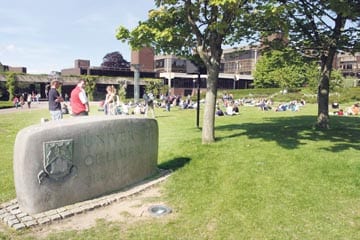
A PUBLIC POLICY expert from the University of Limerick has recommended that the government maintain control of critical state assets in the future.
Economist Dr Eoin Reeves, is the co-author of Privatisation in Ireland: Lessons from a European Economy, launched this week.
“In a very difficult fiscal situation like ours. Privatisation of state assets is often seen as a means of raising cash. We believe it’s probably the worst thing to sell off critical infrastructure; we need these assets to ensure that we’re competitive in the future.
“Selling these companies we lose control of critical state assets that we should retain control of”.
Their findings are in contrast to those of a recent report by Dr Colm McCarthy on the sale of state assets.
“This report suggests that we should sell our stake in Aer Lingus… we would disagree with this as we would lose control of our connectivity.
“The McCarthy report looks forward and we are trying to learn from past privatisation experiences. We believe that there are more lessons to be learned”.
Dr Reeves is director of Privatisation & Public Private Partnerships Research Group at UL, and carried out the first in-depth study into state-owned enterprises that were sold in Ireland, with his colleague Dr Donal Palcic.
“If we sell the remaining state assets, there is an assumption that their performance will improve, resulting in better value for the consumer. there is no evidence of that to date.
“It is more likely to get better performance by opening up to competition”.
Since 1991, when privatisation began in Ireland, 10 state-owned enterprises have been sold, earning €8.6 billion for the exchequer.
This removed state control in strategic sectors such as shipping, air transport, sugar and steel.
“As economists focus on enterprise performance, we performed an in-depth analysis of the state assets that were sold.
“Basic performance indicators suggest that just one company has performed successfully. Most of them performed well before privatisation, but not necessarily after”.
The UL economists also measured up the costs including selling shares at a discounts to employees in the Employees Share Ownership Plan (ESOP) scheme and paying fees to the relevant professionals during the privatisation process.
“We calculated that revenues foregone as a result of privatisation amounted to €2.2 billion, with €1.1 billion from ESOPs”.
Dr Reeves said that large scale ESOPs are a unique feature of Irish privatisation. It’s a reflection of social partnership in Ireland.
“Private Equity Groups involving Dermot Desmond and George Soros, also did very well from the sale of Eircom. It had a negative affect on the economy, as they allocated huge dividends and a huge deficit in broadband infrastructure, that is a disaster for a small export orientated country”.
The lecturer said that Ireland has to get its privatisation policy right.
“There is an obvious case for selling shares in state assets while maintaining majority control, performance is then monitored by private investors.
“Traditionally in Europe, government has always maintained a controlling interest”






